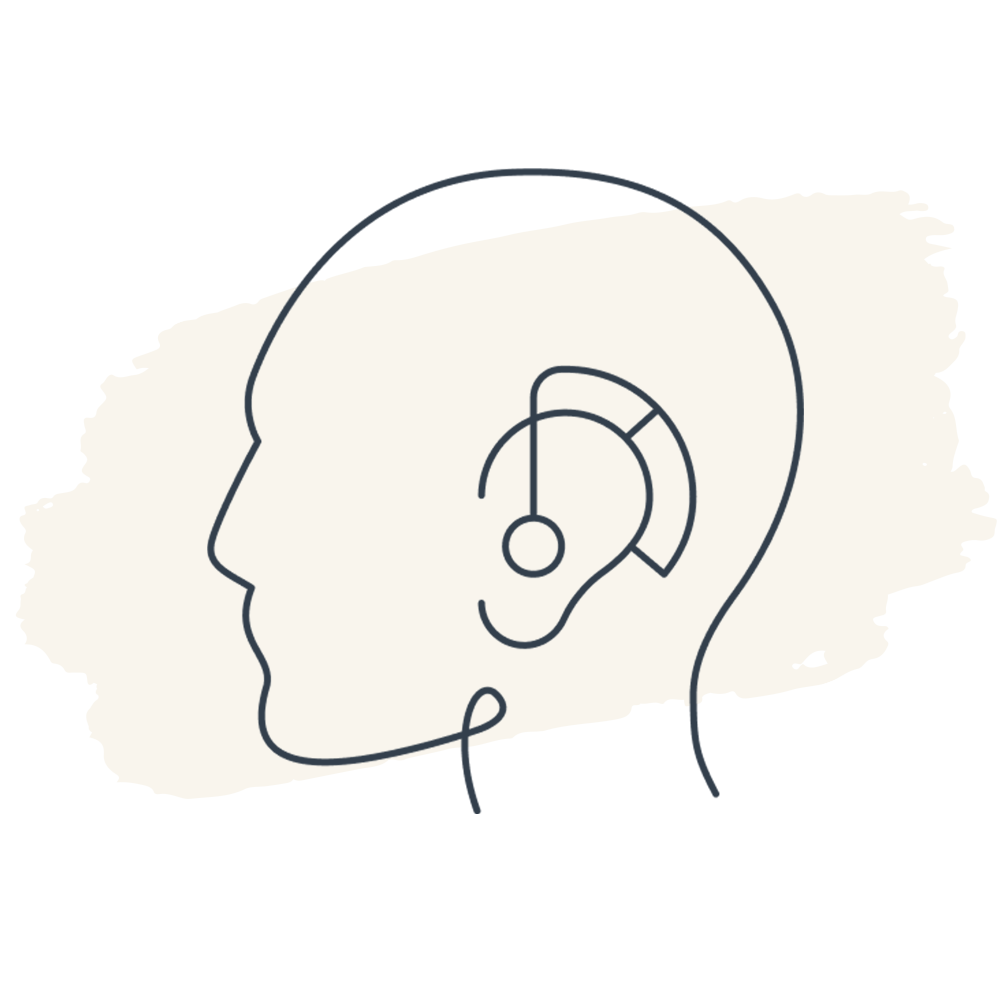Medically Reviewed by: Dr Jackie Gray, Public Health Expert and Retired GP
(Carents Trusted Reviewer Programme – Last reviewed July 2025)
Understanding Hearing Loss
Hearing loss is part of the normal ageing process. It begins as early as your 40s but usually happens very gradually, affecting both ears.
Approximately 42% of individuals over the age of 50 and 71% over age 70 have some degree of hearing impairment. However, only one third of people in the UK who could benefit from hearing aids wear them.
How does the ear work?
The ear is divided into 3 parts:
Outer ear: the visible external part or “pinna” and the ear canal. The outer ear funnels sounds towards the ear drum or “tympanic membrane”, causing it to vibrate.
Middle ear: an air-filled cavity behind the ear drum, containing a chain of 3 small bones called the ossicles which pass sound vibrations along to the inner ear.
Inner ear: the cochlea, an organ shaped a bit like a snail-shell, filled with fluid and special hair cells. Sound vibrations stimulate the hair cells which send messages along the hearing or auditory nerve to the brain where they are interpreted as sounds. Another part of the inner ear is the vestibular apparatus. Movement of fluid inside this part sends messages to the brain about changes in position of the head, and so is important in balance.
Types of hearing loss
There are 2 main types of hearing loss, although it is possible to have both.
Conductive hearing loss; failure of conduction of sound waves to the cochlea. There are many causes including ear wax, diseases of the ear drum or ossicles or fluid in the middle ear cavity (“glue ear”). Sometimes the hearing loss is temporary.
Sensorineural or “nerve” deafness due to faulty signalling from the cochlea. This latter type is what happens in age-related hearing loss, although there are other causes too such as genetic factors, noise-induced deafness and certain drugs. Age-related hearing loss is caused by wear and tear of the hair cells and is permanent but hearing aids can be a huge help.
Do I need to see a doctor?
Gradual hearing loss is not usually of concern but some symptoms can suggest an underlying medical problem.
Sudden hearing loss occurring over less than 72 hours, in one or both ears, should prompt an urgent medical opinion.
Other signs for which you should seek medical advice include:
- Rapidly increasing hearing loss
- Persistent hearing loss or tinnitus in ONE ear only (see section on tinnitus)
- Hearing loss associated with other symptoms such as vertigo (dizziness or a spinning sensation), ear pain or discharge, altered sensations in the face or drooping of the face
Age related hearing loss (presbycusis)
In presbycusis, the higher frequency sounds are the first to be lost, so it may be harder to hear women’s or children’s voices, bird song and the beeps of alarms and devices, for example. Consonant sounds such as “s”, “f” and “h” are higher-pitched and this means that it becomes hard to make out speech clearly, particularly in a noisy background. This is often one of the first signs. You might also notice that the person with hearing loss asks you to repeat things or turns up the TV quite loud.
Tinnitus
Tinnitus is the name given to noises in the ear, often a ringing, buzzing, whooshing or hissing sound, which isn’t coming from an outside source.
WHAT OUR CARENTS SAY
Medically reviewed by Dr Jackie Gray, July 2025
Stay in touch with The Carents Room
Stay informed and supported on your carenting journey with our newsletter, designed to provide you with:
- Practical Tips: Get expert advice and useful tips to help you navigate the challenges of caring for your elderly relatives.
- Latest Updates: Stay up-to-date with the latest news, research, and developments in health and care services.
- Community Insights: Hear from fellow carents, sharing their experiences and stories to support you.
- Exclusive Resources: Access special content and resources designed to make your role as a carer easier and more effective.
Join our community today and make carenting a smoother, more informed experience. Simply enter your email below to start receiving our carefully curated content straight to your inbox.
